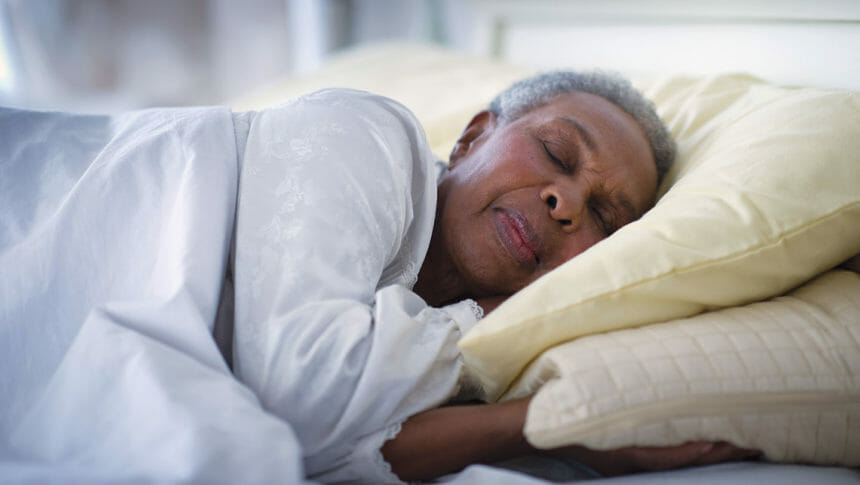A new study published in Neurology found that individuals who have experienced a stroke are more likely to experience abnormal sleep patterns compared than those without a history of stroke. While the study does not prove that stroke causes abnormal sleep, it does show an association
The research, which analyzed data from 39,559 participants in the National Health and Nutrition Examination Surveys (NHANES) database, found that among the 1,572 individuals who reported having had a stroke, sleep durations outside the normal range of 6 to 8 hours were more common.
Lead author Sara Hassani, MD, of the Duke University School of Medicine’s neurology department in Durham, North Carolina, emphasized the importance of proper sleep for brain and heart health. “We know that abnormally long or short sleep after stroke can affect recovery and deteriorate quality of life.”
The study divided participants into three age groups: 18-44, 45-64, and over 65. Results found that normal sleep duration was less common for people who had had a stroke than for those without stroke, across all age groups.
Specifically, among people ages 18-44, 32% of those with a history of stroke had normal sleep duration vs. 54% of those without stroke history; the difference for people ages 45-64 was 47% vs. 55%; and 45% vs. 54% for people over 65.
After adjusting for factors such as age, weight, and high blood pressure, researchers found that individuals with a history of stroke were 54% more likely to report sleeping more than 8 hours per night and 50% more likely to sleep less than 6 hours compared with those who hadn’t had a stroke.
Hassani noted that conditions like insomnia and excessive sleepiness are common in stroke patients and may occur as a direct or indirect consequence of the stroke itself.
These findings underscore the need for healthcare providers to screen for sleep issues in stroke survivors and explore potential interventions to improve sleep habits. Future research will aim to further investigate the links between stroke and sleep duration, as well as determine how sleep patterns may affect post-stroke outcomes.




